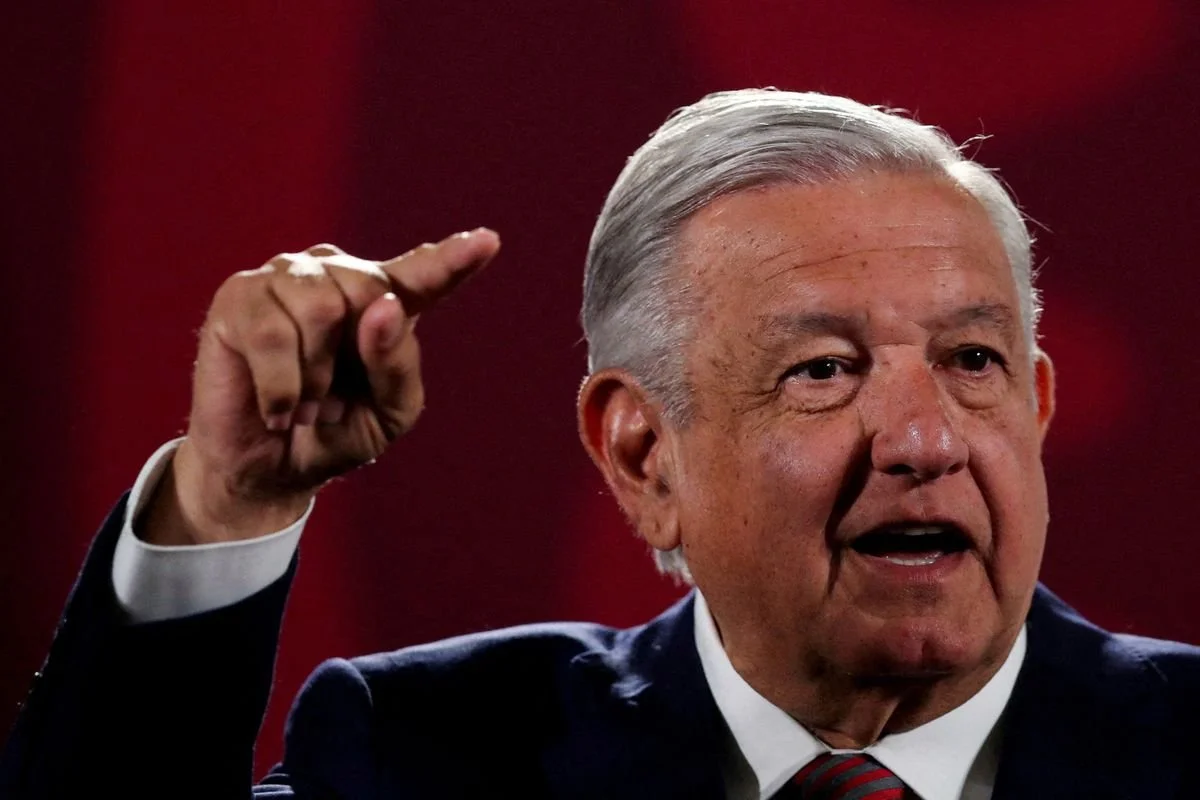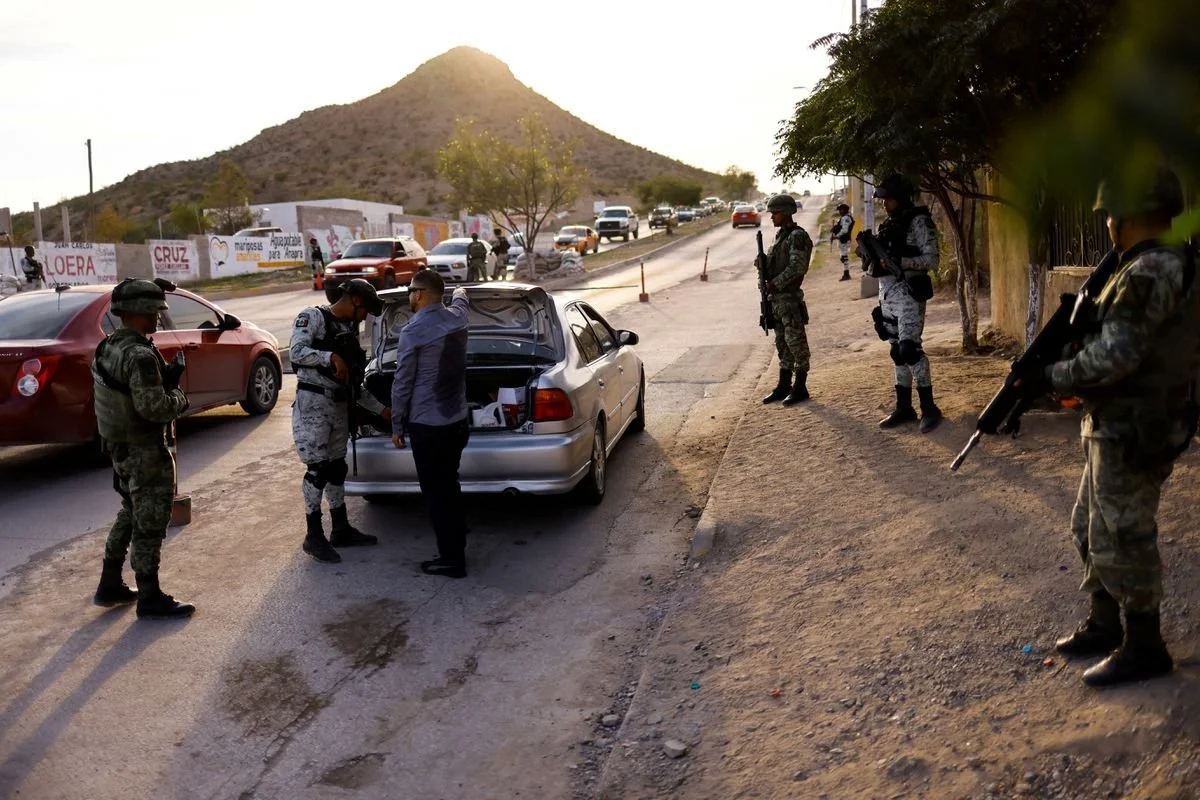Mexico’s Militarization of Public Security Accelerates
Mexico's President Andres Manuel Lopez Obrador gestures during a news conference at the National Palace in Mexico City, Mexico. Source: Reuters/Edgard Garrido
Last Friday, Mexico’s Chamber of Deputies voted to keep the military on the streets until 2028.
With 339 for and 155 against, the congress was overwhelmingly in favor of continuing the policy of militarizing policing duties for public security. President Andrés Manuel López Obrador (AMLO) gave his support for the proposal. For it to come into law, it must next pass in the state legislatures and the capital, with Congress having been the most likely roadblock.
The military’s expanded capacity began in 2006 under President Felipe Calderón when he deployed the Mexican army to combat drug cartels and organized crime. The notorious war on drugs has continued since, with the supposedly temporary strategy extended by Calderón’s successor Enrique Peña Nieto’s military policing law.
AMLO, as well, has continued the dominance of the military in the public sphere. Cecilia Farfán Méndez, a researcher at the University of California, San Diego, explained that “while each administration has grappled with how to improve the police, the real concern with this administration is that they have abandoned the goal of developing a civilian public security force. Instead, so much is being given to the military, and the militarization of Mexico is in full force.”
President AMLO campaigned against troops in the streets, and, once in office, created the civilian-led National Guard to replace federal police. However, last month he and Congress agreed to put the National Guard under the control of the Defense Ministry, removing any civilian authority.
AMLO defended his plan, arguing that it "isn't to militarize or move towards authoritarianism, but to guide—under the defense ministry's oversight—the healthy growth of what should be the main public security institution in the country."
Mexico’s military has been riddled with accusations of human rights abuses. Ever since the militarization of police duties, civilian oversight and accountability have waned. Violence has only increased—while the number of soldiers doubled over fifteen years, homicides increased by 240 percent.
Executions, disappearences, and torture are ongoing issues, and there have been several massacres of civilians by the army. Moreover, the military has obstructed human rights investigations, with military officials refusing to cooperate.
Members of the Mexican National Guard and the Mexican army check a car at a military checkpoint, as part of a security operation to reduce violence, in Ciudad Juarez, Mexico. Source: Reuters/Jose Luis Gonzalez
Multiple scandals have unfolded under Mexico’s growing military presence. A recent government truth commission led to the arrest of a retired general and two other soldiers due to their connection to the disappearance of 43 students from Ayotzinapa in 2014. The military had obstructed this investigation by the International Group of Independent Experts multiple times.
Earlier this month the Mexican Defense Ministry was hacked by Guacamaya, a hacktivist group based on protecting the environment. Four million emails were published, revealing the military’s growing power, influence, and proximity to the government and AMLO, and a multitude of severe infractions, such as violating civilian privacy and working with crime organizations.
The military used Pegasus spyware to surveil journalists, activists, and other civilians—something that past administrations have been caught doing, as well. Various government officials have been linked to drug cartels, including Veracruz governor Cuitláhuac García and Interior Minister Adán Augusto López.
Additionally, over 300 cases of sexual assault or harrassment by military personnel have been covered up.
The military’s sway in the economy was also emphasized in the hacks. So far, military funding has been used to build $45 billion worth of infrastructure projects. Other large-scale military-funded projects include a 1,000-mile railway, an international airport, an oil refinery, a national tourism agency, and a national airline. This financial self-sufficiency has brought up concern for less government involvement in the military, as the military has been eliminating its dependence on elected officials for an annual budget.
“Mexico’s armed forces are known as the least transparent institution, and these leaks come at a critical moment as the Mexican government is deepening the military’s involvement in civilian life and institutions,” said Stephanie Brewer, the Mexico director of the Washington Office of Latin America. If this pattern continues, the Mexican military has a chance of becoming even more powerful than the civilian government.


